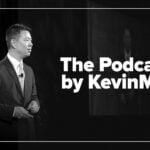I know what I’m about to say is unpopular, and maybe even controversial within our field — but I need to say it.
I’ve been a nurse for 18 years. I care deeply about my patients, and I care about the future of this profession. But I’m increasingly disheartened by what I see inside our own ranks. There’s a phrase we all know: “nurses eat their young.” We repeat it so often it’s almost a joke — but it’s not funny, and it’s not just a problem with bedside bullying. I believe this toxic culture starts even earlier, in nursing school.
Far too often, students are treated with harshness rather than guidance. Instructors justify it as “preparing us for the real world,” but many of us leave school already worn down, insecure, and anxious — not empowered. From the very beginning, the environment can be competitive, rigid, and deeply unsupportive. And when that becomes our foundation, it shouldn’t be surprising that so many of us bring those same behaviors with us into the workplace.
What follows is a profession that is, in many places, rife with passive-aggressiveness, gossip, and backstabbing. Collaboration — true, team-based care — can feel like a rare and fleeting experience. I’ve never witnessed as much undermining, subtle hostility, and lack of unity as I have since entering nursing. And I say this as someone who wanted this career, who still believes in its potential, and who wakes up every day trying to make a difference.
Here’s another thing that might upset people: I believe nursing is a skilled trade, not a profession in the way we try to market it. Yes, we need education. Yes, we need strong foundations in pharmacology, pathophysiology, and evidence-based care. But at the end of the day, nursing is hands-on, dynamic, and grounded in practice more than theory. Historically, nurses were trained in hospitals — and they were often better prepared for real-world work than many new grads today.
What we need is a return to structured, experiential learning — not less education, but better education. And most importantly, we need residencies. Not eight weeks of orientation followed by “good luck.” We need one to two years of supported clinical practice, like physicians get. Why are we expected to manage complex care with so little preparation? This setup doesn’t just fail new nurses — it endangers patients.
I hesitate to say this next part, but I will because it’s honest: I’ve found I work better on teams that include more men. That’s not because I think women are the problem — I work with brilliant, compassionate women every day. But the dynamic often changes with more gender diversity. In my experience, there’s less drama, more directness, and a stronger sense of shared mission when the team isn’t homogenous. Nursing has historically been a female-dominated profession, and that comes with both strengths and challenges. I believe the field would benefit from more balance — and from the kind of mutual support I see among physicians, who often have a more unified culture.
None of what I’m saying comes from a place of bitterness. I’m proud of what I do. I still believe in nursing. But I also believe we need to be brave enough to tell the truth about what’s broken if we ever hope to fix it.
We can’t keep eating our young. We need to feed them — with knowledge, patience, mentorship, and honest encouragement. And we need to stop pretending that a few extra degrees or titles will save a system that’s lacking the most basic things: trust, unity, and respect.
If you’ve ever felt this way too, you’re not alone. And if you haven’t — I hope you’ll at least sit with the possibility that some of us are just trying to make nursing better, not tear it down.
Adam J. Wickett is a psychiatric nurse.




















![AI censorship threatens the lifeline of caregiver support [PODCAST]](https://kevinmd.com/wp-content/uploads/Design-2-190x100.jpg)
